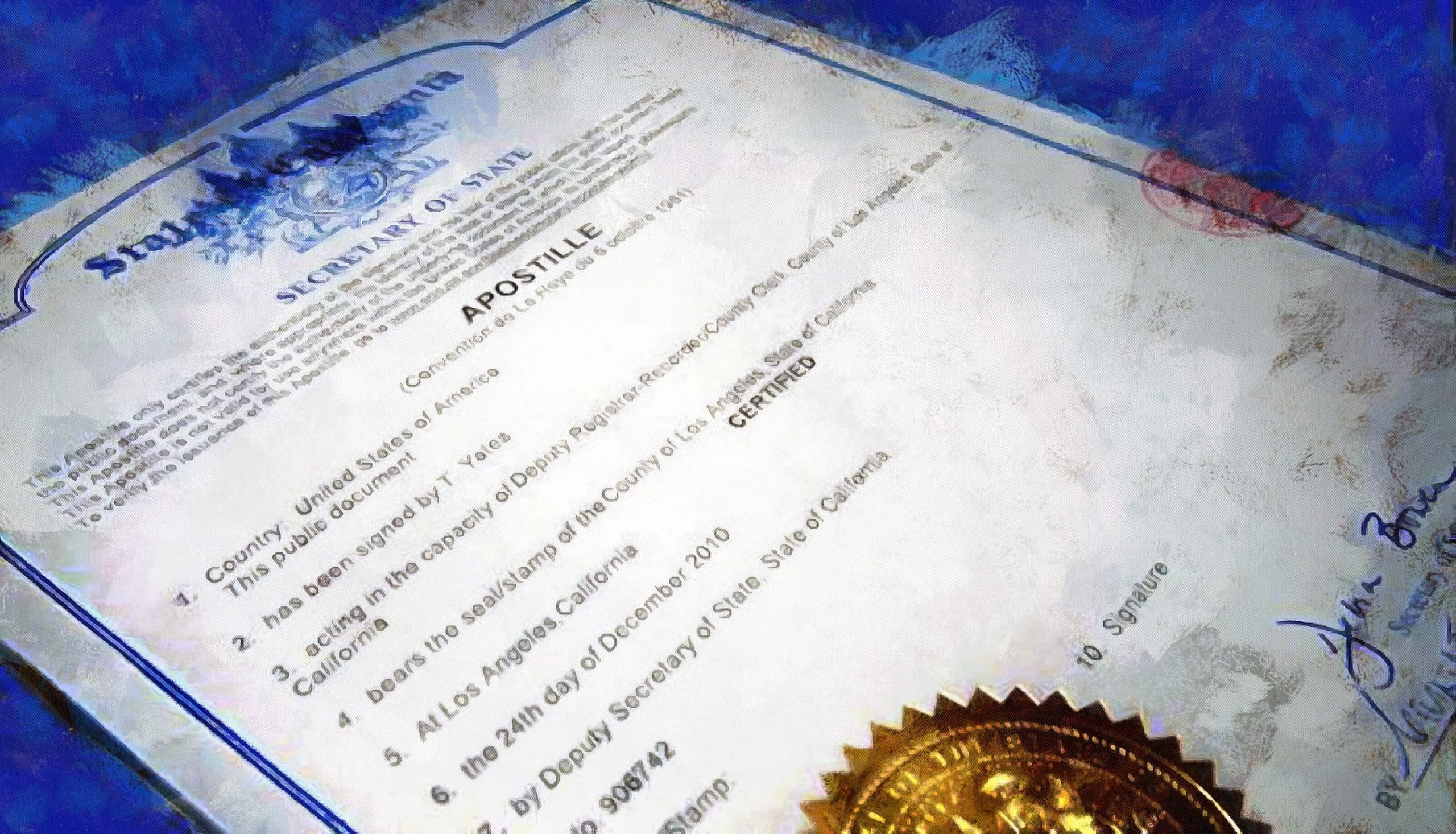In most countries, only their own documents, or those of other states, drawn up accordingly, have legal force. In order to be able to use official papers issued by the state authorities of our country outside Russia, it is necessary to carry out a certain procedure for giving them legal force. For this, apos

tille or consular legalization is used. They have one goal, but different execution, for example, legalization implies the obligatory translation of documents, and also has a number of other differences.
Apostille
The apostille process was introduced by an international agreement at the Hague Convention. Consequently, the list of countries in which it operates is limited to those who signed this agreement. The procedure is simplified and consists of placing a rectangular stamp on a document intended for presentation in a foreign country. It is placed on the original or a copy certified by a notary. Thus, the validity of the information, their legality is confirmed.
Not all documents are subject to apostille. It is impossible for Russian military cards, passports, work books,

vehicle registration certificates. Also does not apply to commercial documents of organizations.
Apostille is affixed:
By the Ministry of Education for diplomas, certificates and other papers;
by the registry office for official papers on civil relations;
The Ministry of Internal Affairs, which fixes the authenticity of certificates of law enforcement agencies;
The Ministry of Justice processes other notarized documents.
Consular legalization
In states where apostille is not valid, consular legalization is applied. It also confirms authenticity and legality, but is more complex. First, the document must be translated into the language of the state where it is submitted. This can only be done by a specialist included in the register. He signs papers, indicates passport details. Then the translation is certified by a notary, checking the translator’s legal capacity. After that, the documents are sent to the Ministry of Justice, then to the department of the Ministry of Foreign Affairs of the Russian Federation. At the final stage, the check is carried out by the consulate of a foreign state. Such legalization is unacceptable for passports and their copies, papers reflecting various commercial transactions.




